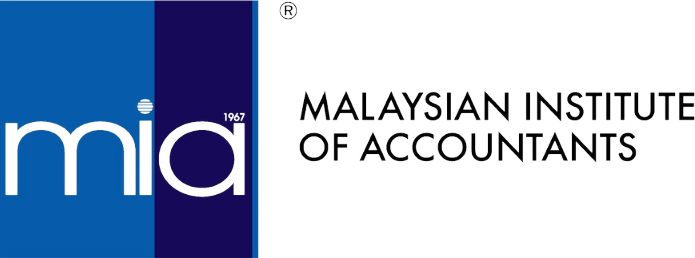Managing payroll efficiently is critical for small and medium enterprises (SMEs) in Malaysia. A well-organized payroll process ensures employees are paid on time, tax obligations are met, and compliance with local regulations is maintained. However, payroll management can be overwhelming, especially with the various statutory requirements in Malaysia.
This essential payroll processing checklist is designed to help Malaysian SMEs streamline their payroll operations, avoid errors, and ensure compliance with labor laws and tax regulations.
1. Gather Complete Employee Information
The first step in payroll processing is collecting accurate employee data. This includes:
- Full name and identification details (e.g., MyKad or passport for foreign workers).
- Employment type (full-time, part-time, contract, or freelance).
- Salary details, including basic pay, allowances, and deductions.
- EPF, SOCSO, and EIS contribution details.
- Bank account information for salary disbursement.
2. Understand Statutory Compliance Requirements
In Malaysia, businesses must comply with several statutory regulations, including:
- EPF (Employees Provident Fund):
Mandatory retirement fund contributions. - SOCSO (Social Security Organization):
Coverage for work-related injuries and illnesses. - EIS (Employment Insurance System):
Support for employees in case of unemployment. - Income Tax (PCB):
Monthly tax deductions under the Potongan Cukai Bulanan system.
Familiarize yourself with the rates and deadlines to ensure accurate calculations and timely submissions.
3. Establish a Clear Payroll Schedule
Define a payroll schedule that specifies:
- Pay periods (e.g., monthly, bi-weekly).
- Deadlines for salary disbursement.
- Cut-off dates for processing overtime, claims, and deductions.
Consistency in the payroll schedule helps build trust with employees and ensures compliance with Malaysian labor laws.
4. Calculate Employee Salaries and Deductions
Accurate salary calculations include:
- Basic salary.
- Overtime, allowances, and bonuses (if applicable).
- Statutory deductions (EPF, SOCSO, EIS, and PCB).
- Other deductions, such as loans or advances.
Using payroll software or outsourcing payroll can significantly reduce errors and save time during this step.
5. Generate and Distribute Payslips
In Malaysia, employers are required to provide employees with payslips that include:
- Gross salary and deductions.
- Net salary paid.
- Statutory contributions (e.g., EPF, SOCSO, EIS).
Ensure payslips are clear, accurate, and compliant with Malaysian labor laws.
6. Manage Tax Filing and Reporting
Malaysian SMEs must adhere to strict tax reporting requirements, including:
- Submitting monthly PCB deductions to the Inland Revenue Board (LHDN).
- Issuing EA forms to employees for annual tax filing.
- Filing Form E for employer tax submissions.
Late or inaccurate submissions can result in penalties, so keep a record of deadlines and ensure timely reporting.
7. Track Employee Attendance and Overtime
Employee attendance and overtime hours directly impact payroll calculations. Implement a reliable attendance tracking system to ensure accurate:
- Overtime pay calculations.
- Leave deductions or payments.
- Absenteeism adjustments.
Using a time tracking system integrated with payroll software can simplify this process.
8. Ensure Data Security and Confidentiality
Payroll data contains sensitive information, including salary details, tax records, and personal employee data. To safeguard this data:
- Use payroll software with robust encryption.
- Limit access to payroll records to authorized personnel only.
- Regularly back up payroll data securely.
9. Stay Updated on Payroll Laws and Regulations
Malaysian payroll regulations can change, affecting EPF, SOCSO, EIS, and tax requirements. Staying informed about updates is crucial to remain compliant and avoid penalties.
Solution: Partner with a payroll outsourcing provider like Amaze Payroll, which stays up-to-date on all regulatory changes and ensures compliance for SMEs.
10. Conduct Regular Payroll Audits
Review your payroll process periodically to identify discrepancies, errors, or areas for improvement. A payroll audit ensures accuracy and helps maintain compliance with statutory obligations.
Conclusion: Simplify Payroll Processing with a Reliable Partner
Managing payroll doesn’t have to be a complicated task for SMEs in Malaysia. By following this essential payroll processing checklist, your business can ensure compliance, reduce errors, and improve overall efficiency.
If you’re looking to simplify payroll processing and focus on growing your business, consider outsourcing your payroll to Amaze Payroll. With expert knowledge of Malaysian payroll regulations and a commitment to accuracy, we can help you streamline your payroll operations and stay compliant.
Contact us today to learn more about our services and how we can support your business needs.
Disclaimer
The information provided in this article is intended for general informational purposes only and may not reflect the most current regulations or legal developments. Payroll laws and requirements in Malaysia are subject to change, and we recommend consulting with a professional or official government resources for the latest updates. Amaze Payroll is not liable for any inaccuracies or actions taken based on this article.









